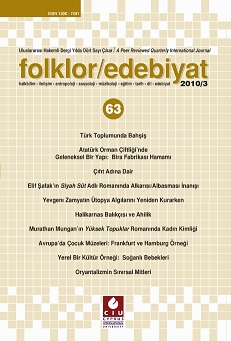Plautus’un “Amphitryon” Adli Eseri İle Molière Ve Heinrich Von Kleist Uyarlamalarinda Metinlerarasilik
Intertextuality between Plautus' "Amphitryon" Judicial Artifact, Molière and Heinrich Von Kleist adaptations
Author(s): Ayşegül Ciner, Medine SivriSubject(s): Theatre, Dance, Performing Arts, Cultural history, French Literature, Culture and social structure , 17th Century, 18th Century
Published by: Uluslararası Kıbrıs Üniversitesi
Keywords: Amphitryon; Molière; Kleist; intertexuality; adaptation;
Summary/Abstract: The aim of this paper is to analyse how Molière and Kleist adapted Plautus’s “Amphitryon” to study the changes made during this adaptation and to present the traces of periods when the plays were written, and their cultural and social characteristics. This play written in the Antiquity was rewritten and adapted in the 17th and 18th centuries. Intertextual method has been used in this study. Amphitryon is a play adapted from a myth and in the three plays adapted the structure was never changed. In the adapted plays Amphitryon has always the same characteristics as a character, but the other characters have gradually become more dominant in the plays adapted. Especially, Zeus’s becoming an ambitous and a cruel criminal from being an innocent offender is an outstanding example. Although “Amphitryon” was rewritten in different periods, its main theme, characters and motifs were presented to the readers in the same way. However, some motifs and some features of the characters have been subject to some changes, which is required by the social and cultural conditions of the periods plays were written. As a result, it has been observed that both Molière and Kleist have followed the main characteristics of “Amphitryon” though they have adopted the notions of theatre in their own periods.
Journal: Folklor/Edebiyat
- Issue Year: 16/2010
- Issue No: 63
- Page Range: 127-153
- Page Count: 27
- Language: Turkish

